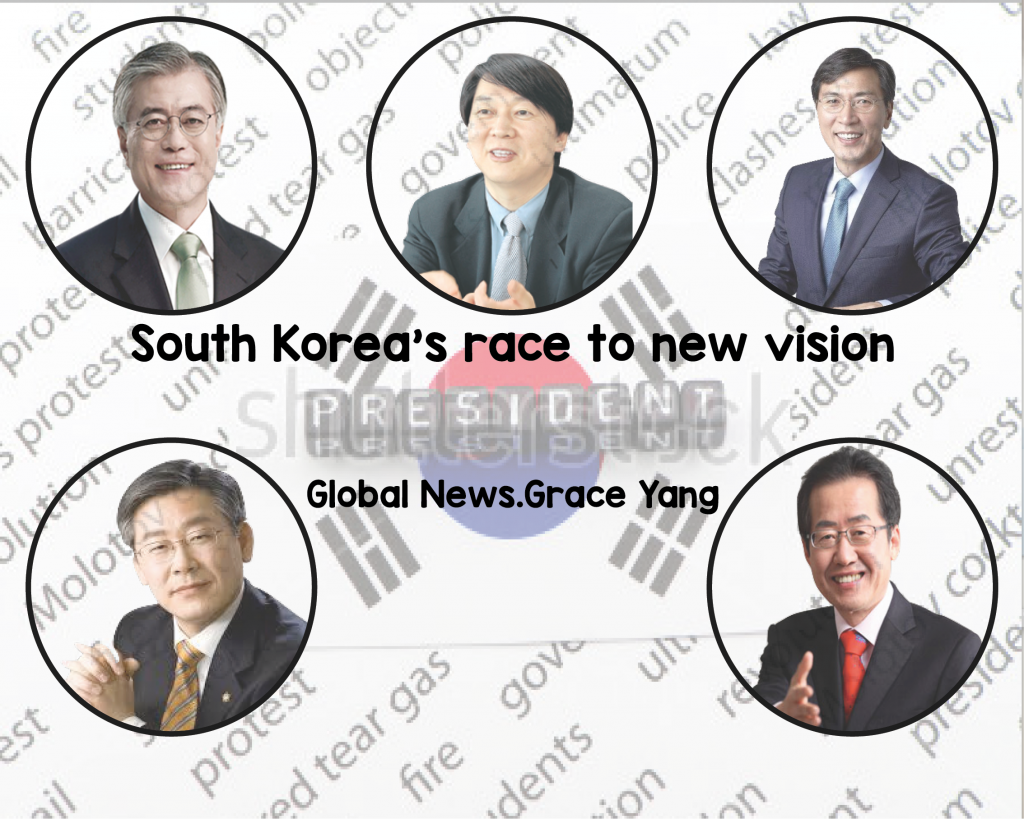Thousands of people showed up in Gwanghwamun Square on March 11 to celebrate the impeachment of President Park Geun-hae. Although the order from the constitutional court of South Korea ended the scandal-filled Park regime, the decision also marked a new beginning for Korea, especially regarding the next presidential election just two months away.
There seems to be three major political grounds in which new presidential candidates are likely to run from. Firstly, the liberal left aims to carry on its momentum on seizing power after ousting former President Park. There are four candidates in the Democratic Party’s presidential primary contest, including Moon Jae-in, who has topped the list of contenders across the aisle by a large margin in polls. South Chungcheong Province Governor An Hee-jung is another candidate who also worked closely with President Roh. On the liberal grounds, he stands as a fairly centrist figure. Meanwhile, Seongnam Mayor Lee Jae-myung is a self-made politician with a harsh tongue and a progressive vision. Even though his popularity grew amid the political maelstrom with President Park last year, his poll numbers have stalled in recent weeks. Another presidential aspirant of this party is Goyang Mayor Choi Sung, a relatively unknown candidate. At the far left of the liberal block stands the minor Justice Party’s Sim Sang-jeung. Currently the only hopeful female presidential, the former party leader was the first to win the in-party primary.
The second major political ground, the middle ground, hopes to expand its power as well and become a game changer. Three main candidates are currently running to claim their stretch. Among such figures is former Prime Minister Chung Un-chan and Kim Chong-in, a rare high-profile figure to have first served the conservative camp before former President Park’s election and later the liberal opposition Democratic Party of Korea as interim chief. Representative Ahn, the founder of AhnLab who developed antivirus software, is another candidate who maintains strong support from certain geographical locations.
The Constitutional Court’s unanimous decision to impeach Park has already shifted the Korean political pendulum to the left, making it difficult for the conservative rights. Leading the conservative field is Prime Minister Hwang Kyo-ahn who unfortunately faces voter hostility as he supported Park’s conservative initiatives. Mindful of this situation, the party pushed power over to Hong Joon-pyo. Former Gyeonggi Province Governor Rhee In-jae Rhee and Representative Won Yoo-chul are also officially in the party’s primary race, although their chances look slim.
As these candidates prepare to fight another battle in hopes of empowering South Korea again, the future of both the political ground and the nation as a whole still remains a question at the hands of the voters in the upcoming election.

